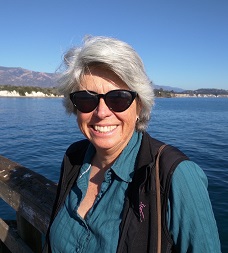FAIR’er data through Semantics in NSF’s DataONE and Arctic Data Center
Speakers

Margaret O'Brien
Santa Barbara Coastal Long Term Ecological Research

Mark Schildhauer
NCEAS
Mark was the Director of Computing at NCEAS from it’s opening in 1995 until 2017, in charge of building and maintaining the computational infrastructure, and supervising the scientific computing staff. He recently “semi-retired” to become a Center Associate, focused on Ecoinformatics research.
Mark’s main research interest is in how to organize data for ecological syntheses. He is currently working in the area of data semantics and knowledge graphs, where they are using new logic-technology approaches to make data more readily discoverable and re-usable over the Web.
He grew up and went to high school in Southern California, but headed back east to Harvard for an undergraduate degree in Biology. Mark came back to UC Santa Barbara for a PhD in marine ecology, doing research on coral reef fish in the San Blas Islands of Panama.
There is much excitement about the memetically powerful acronym “FAIR”, that frames some principles for better management and stewardship of Scientific Data: that these be Findable, Accessible, Interoperable, and Re-usable (Wilkinson et al. 2016; doi: 10.1038/sdata.2016.18).
In this webinar we will discuss how DataONE (search.dataone.org), the Arctic Data Center (arcticdata.io) and Environmental Data Initiative (environmentaldatainitiative.org) research data repositories are extending their Metadata services to enhance the “FAIR"ness of their contents, by adopting 1) controlled vocabularies or Ontologies; 2) the RDF/RDFS data model and schema; and 3) persistent dereferenceable globally unique Identifiers, PIRI’s - three essential Semantic Web technologies for realizing the vision of a more transparent and integrated scientific data commons, that were endorsed by the authors of the FAIR guidelines (if you read the paper carefully!).